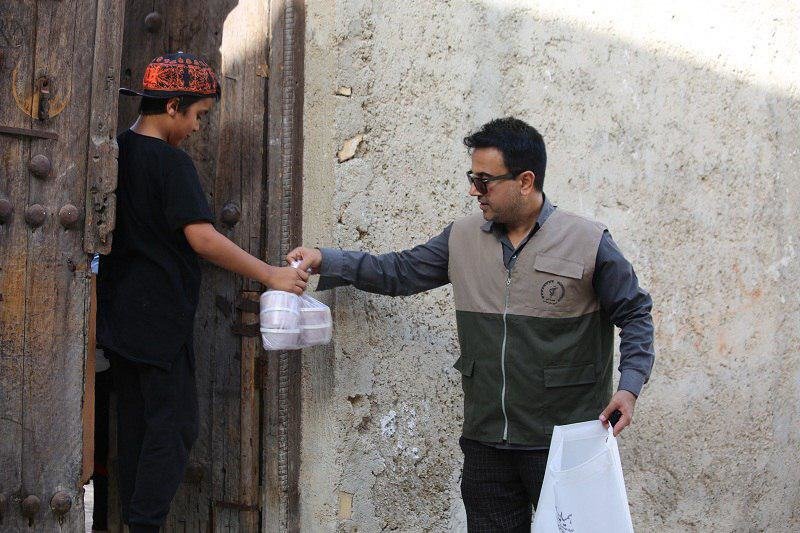Humanitarian aid to the needy during Ramadan

TEHRAN – More than one million food packages have been distributed among the deprived families through a national campaign since the beginning of the holy month of Ramadan (April 13).
During the third phase of Iran-e Hamdel (literally meaning sympathetic Iran) national campaign, 600,000 warm meals, 1.2 million iftar packages, have been distributed among the needy in 3,600 neighborhoods, mosques, and charities.
Over 3,300 kitchens are operating to provide warm meals, Mehr reported on Monday.
It is planned to provide 12 million warm food and 888,000 food packages during the holy months of Ramadan.
The campaign was first launched in 2020 aiming to provide financial assistance to the needy affected by the COVID-19 pandemic, which has collected 1.5 trillion rials (nearly $35 million at the official rate of 42,000 rials).
The second phase of the sympathetic Iran movement with the aim of cooking and distributing 27 million warm foods among the deprived started on Eid al-Ghadir Khumm (August 9, 2020) until the end of Safar (the second month of the lunar-based Islamic calendar).
Iranian benefactors, charity centers, and religious organizations take part in the campaign by cash and kind contributions.
In a televised speech on April 9, 2020, Leader of the Islamic Revolution Ayatollah Ali Khamenei said the coronavirus outbreak is a test for all the world, both for governments and for nations. The Iranian Nation shone brightly in this test, and at the peak of this national pride are the health professionals.
Besides the health professionals, volunteers, university students, and Basij forces have entered the battlefield against the disease and their services are indescribable, the Leader’s Twitter account wrote.
People's participation in the fight against coronavirus was truly amazing: 1) people feeding the needy; 2) turning houses into workshops to sew free masks; 3) disinfecting public areas; 4) talking to landlords and shop owners to exempt people from their rents.
Volunteer efforts in light of pandemic
In the fight against coronavirus, the Iranian Red Crescent Society (IRCS), Basij along with the Ministry of Health and other responsible organizations, has undertaken important activities, from rapid diagnosis and screening to providing medical services and shelter, but the most important activity of this population has been informing the public about healthcare and treatment.
Since the onset of the outbreak, more than 980 voluntary plans and projects to contain the epidemic has been implemented across the country, with 72,694 volunteers participating in the implementation of these projects, Karim Hemmati, the head of the Iranian Red Crescent Society, said in May 2020.
The first phase of public donations was allocated to provide health and essential items for the deprived and unprivileged areas, and besides, 500,000 patients suffering special diseases were provided with essential health items, he stated.
Through the second phase, the IRCS, to provide medical items for COVID-19 patients in hospitals, purchased 100 ventilators worth approximately 160 billion rials (around $3.8 million), 52 devices have been provided with the help of charities and public participation, he added.
With the efforts of the Basij, a national plan named after martyr Qassem Soleimani so far the decreased transmission chain of the disease by 50 percent.
Martyr Soleimani's plan is being implemented in cooperation with the Ministry of Health, Basij, and the Red Crescent Society, through which volunteer forces provide information, testing, diagnosis, referral of suspects to health centers, and offer services by visiting people’s homes.
Some 22,530 monitoring teams have been formed within the framework of the plan since December 2020 with 103,000 members, of which more than 270,000 are in contact to identify COVID-19 patients, said Jafar Sadeq-Tabrizi, head of the Network Management Center of the Ministry of Health.
Some 6,730 home care teams have been formed in the country with the participation of 18,000 forces, who have taken care of 41,000 people at home, and rapid result tests have been performed on 7,500 suspects, he explained.
Since December 2020, with the participation of 61,000 people, more than 10,000 monitoring teams have been formed. About 782,000 visits and monitoring of various places and centers have been formed.
FB/MG
